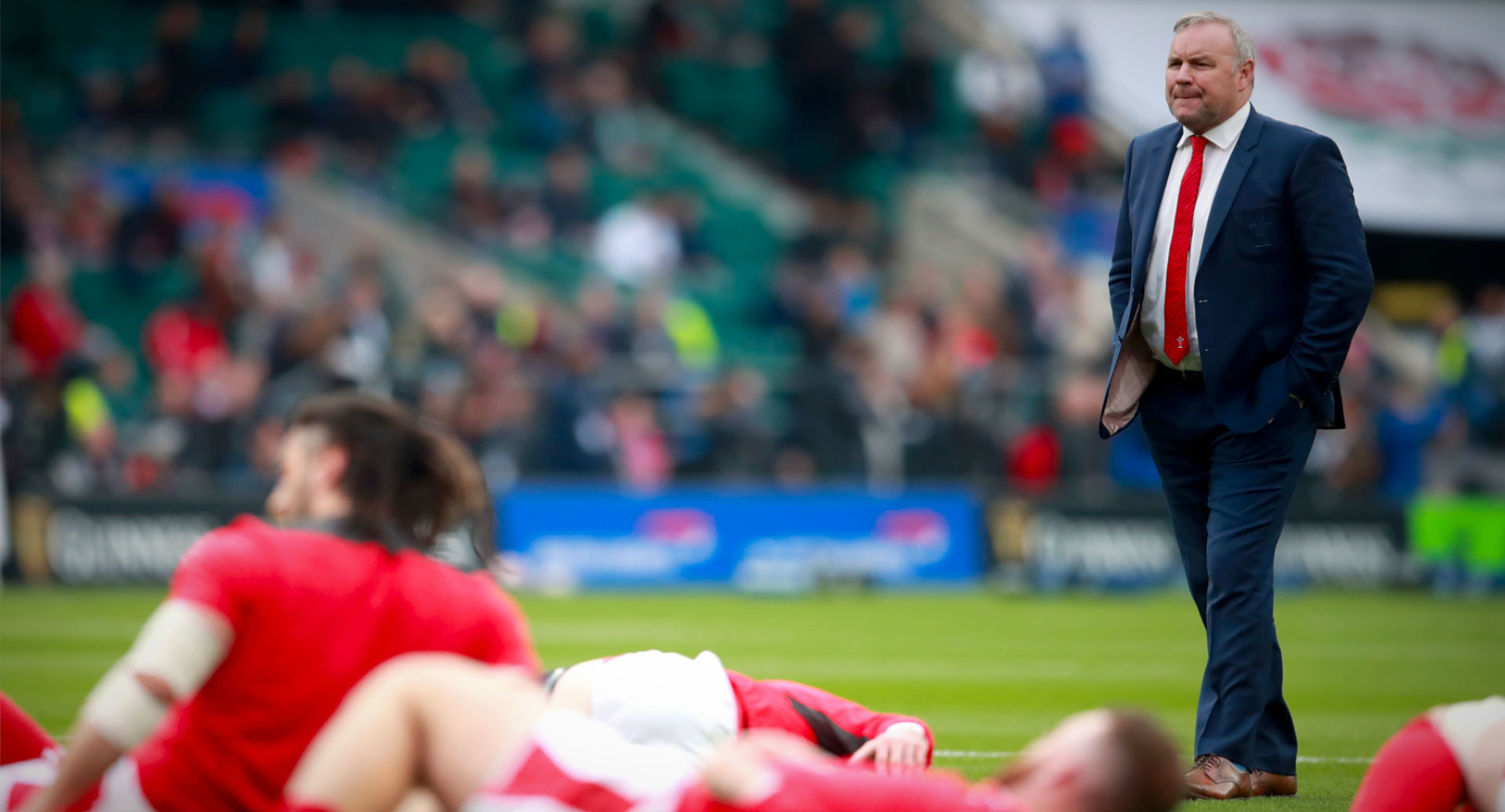Go easy on Wayne Pivac. He's got a massive decision to make

In the hours leading up to kick-off, the hub-bub around Twickenham didn’t have its usual frisson of excitement, for this magisterial 139-year old fixture. The spectre of Coronavirus was all-pervasive.
Hand sanitisers sat alongside coffee cups and pint glasses but any sterility didn’t last for long when two long-term foes got the juices flowing in game packed with incident.
Six tries, two melees, one, ahem, ‘ball-tampering’ issue, a yellow and red card and a try for the ages from Justin Tipuric left the crowd at HQ more than sated as they wandered wearily off into the night leaving the inquest to take place in the bowels of England’s fortress.
Wales, for their part, can feel fortunate to have registered the highest total ever in TW2 yet come away with a loss, while Eddie Jones’ men can feel glad to have picked up a Triple Crown with a show of clinical brutality that took the breath away, while lamenting a costly loss of discipline.
The scoreline flattered Wales and while both sides are transition, there was much to mull over post-match.
The Welsh defence has lost its aura
For so many years, when Wales bent over their haunches for a defensive set in their own 22, there was a collective calm. A feeling that ‘thou shalt not pass’.
Who can forget Wales’ repelling of Ireland in 2015 after 45-phases? That aura has dissipated in this year’s Six Nations as Wales have shipped 10 tries in three games. Compare this to 2008’s Six Nations when just two tries shipped under Shaun Edwards’ defensive tutelage.
Wales’ tackle completion still floats around the 90 per cent mark but the brutality isn’t quite on point.
England were able to pierce the Welsh tryline too easily. Anthony Watson was able to paw off Tomos and Liam Williams without the duo landing a meaningful blow.
Manu Tuilagi dotted down unopposed when Wales ran out of numbers and George North was caught too narrow when Elliot Daly streaked in down the left flank. It’s clear WD40 and a spanner is needed to tighten up Wales’ rear-guard action leaving Byron Hayward with plenty to work on.
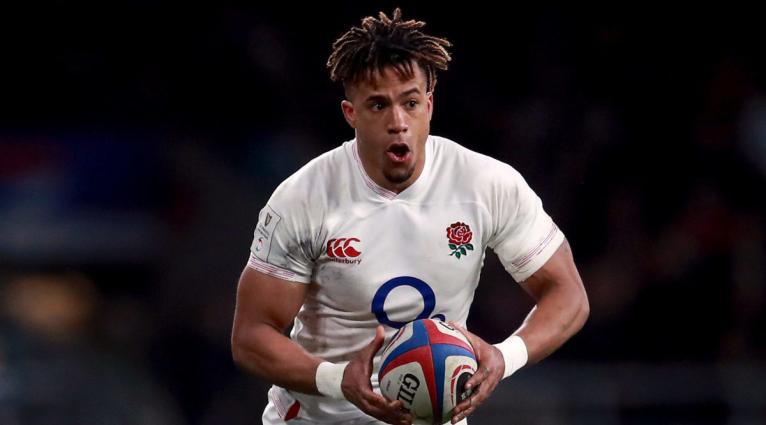
When Owen Farrell said, with a glint in his eye, that they prided themselves on their defence and actually ‘enjoyed it’, he spoke of it as an attacking weapon; a bludgeon to batter ball-carriers.
Indeed, the tape told of 33 ‘dominant tackles’ to eight, with Wales’ attackers getting routinely crumpled into the turf. Wales simply could not compete with the might of Courtney Lawes, Maro Itoje, Tom Curry and Mark Wilson, and that’s with Billy and Mako Vunipola and Joe Cokanasiga waiting to come back. Along with South Africa, England stand alone as the silverbacks of the rugby kingdom.
Wales’ offloading game is a work in progress
For the majority of Warren Gatland’s 124-Test Welsh coaching career there were cat-calls for Wales to play with more verve, more élan and damn it, more joie de vivre to lift posteriors off seats, rather than wince as their enormous battering rams went round the corner, again and again before defenders threw the white towels in for submission.
Now however, there is a touch of the Harlem Globetrotters about Wales, in comparison. There are passages of play when numbers one to 15 offload the ball with alacrity around the contact area and even Wayne Pivac, the orchestrator of this dextrous frippery, has called upon his charges to be more selective in their choices and pick the right areas.

Wales had treble England’s offloads (nine to three), beat nearly double the defenders (24 to 13), and made more clean breaks (13 to 10), mirroring their superiority offensively against France, yet they still trailed on the most important metric; the scoreboard.
After being constrained within Gatland’s winning, yet rigid, framework for so long, perhaps it’s a case of not letting the monkeys in the banana patch. The side are experiencing dopamine overload at such freedom to express themselves. The overriding theme has been of a side trying to change its spots but when it works, boy does it look sublime. Just 26 seconds after the half-time oranges, Justin Tipuric was cantering in under the sticks as the ball went through five pairs of hands. If Wales can temper their impetuous nature and improve their handling, the Welsh team will become a box-office attraction.
All hail the Nick Tompkins appreciation society
It’s becoming a recurring theme. Lauding a callow 25-year-old from Kent and thanking Wrexham’s finest, Granny Enid for gifting Wales one of rugby’s most exciting talents. Yep, Nick Tompkins has been a breath of fresh air for Wales and has made the sort of impact that suggest he will become a mainstay in the Welsh squad for some time. Yet again, he was the side’s most productive carrier, carrying for 75m, skipping, side-stepping, ducking and diving towards the English try-line in a manner that suggest he may be Wales’ sole nomination for Player of the Tournament.
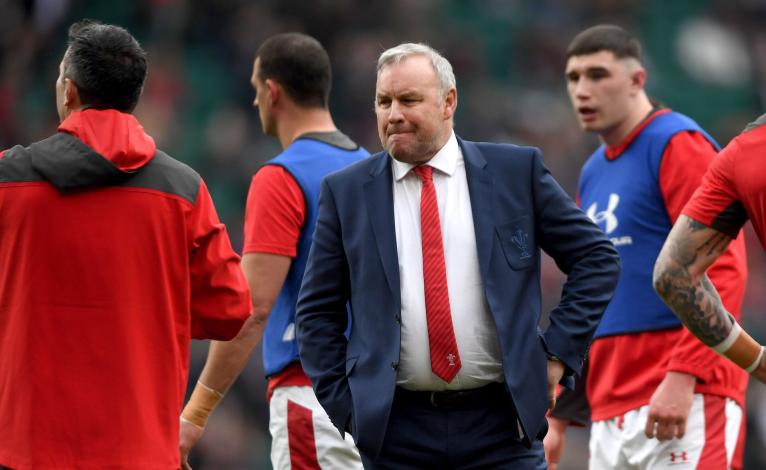
A case-in-point came seconds after George Ford’s restart. Elliot Daly, his Saracens team-mate gave the kick-chase, but a step off his left foot saw Daly overrunning, ahead of him another club team-mate George Kruis, was pinned in defence. He passed right to Josh Navidi who powered down the tramlines. Tompkins, ran a smart inside support line and put another inside ball to Tomos Williams who put Justin Tipuric in from 30m.
In all 26 seconds of Welsh brilliance started by Tompkins. His ambition and lack of fear was intoxicating. Then there was his rifled, accurate passing off both hands, his ability to wriggle out of tackles. He was a thorn in the side of his Saracens team-mates and if his signature is confirmed by the Scarlets, he will surely only improve alongside Jonathan Davies. Bolter for the Lions in 2021? It no longer seems fanciful.
Wales approaching a regeneration but who steps aside?
The shy and retiring Eddie Jones made an interesting point in his post-match missives. He laid out a staunch defence of Wayne Pivac, after his stuttering start to life as Welsh coach, telling assembled journalists that the Welsh nation should be kind to him.
He lauded Wales’ resilience but said that as Wales’ cap profile reached 850, history suggested regeneration was afoot with France 2023 still some way in the distance. Yesterday, there were six players over 30 in the starting fifteen – Leigh Halfpenny (31), Dan Biggar (30), Justin Tipuric (30), Hadleigh Parkes (32) Ken Owens (33), and Alun Wyn Jones (34). Another ageing member of that celebrated sextet is Jonathan Davies who turns 32 next month.
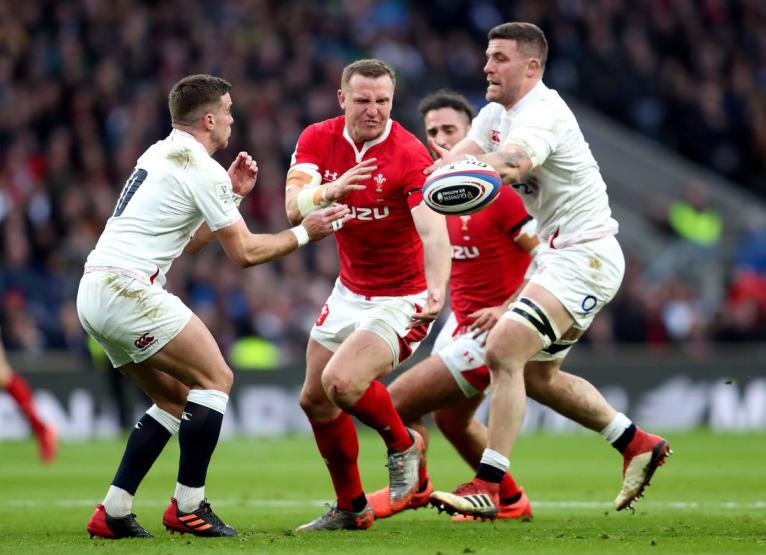
Compare that to England who had three; Courtney Lawes, Mark Wilson and Ben Youngs, who are all 30. France have effectively started again with 19 new caps and an average squad age of 24, with only one player, Bernard Le Roux, over 30 in the 42-man squad. The gentle balancing act for Pivac is to know when each thoroughbred has run his race.
Does he wait another 12-months and allow the aforementioned players a final shot at a farewell tour with the Lions in 2021, or does he start the transformation this summer with a tour to New Zealand? This is why he gets paid the big bucks. He has to show the ruthlessness Warren Gatland did with the likes of Mike Phillips, Jamie Roberts and Adam Jones. A tough task.
Dan Biggar rewriting the definition of the meek fly-half
I’ll be honest, when I saw pictures of Dan Biggar grimacing and being helped off the field last weekend, I thought there are two hopes of the nuggety No 10 facing England. No hope and Bob Hope. How Biggar got through 80 minutes is a source of wonder. When was going through his paces, his right quad was covered in a protective black neoprene sleeve leaving Welsh fans to fret.
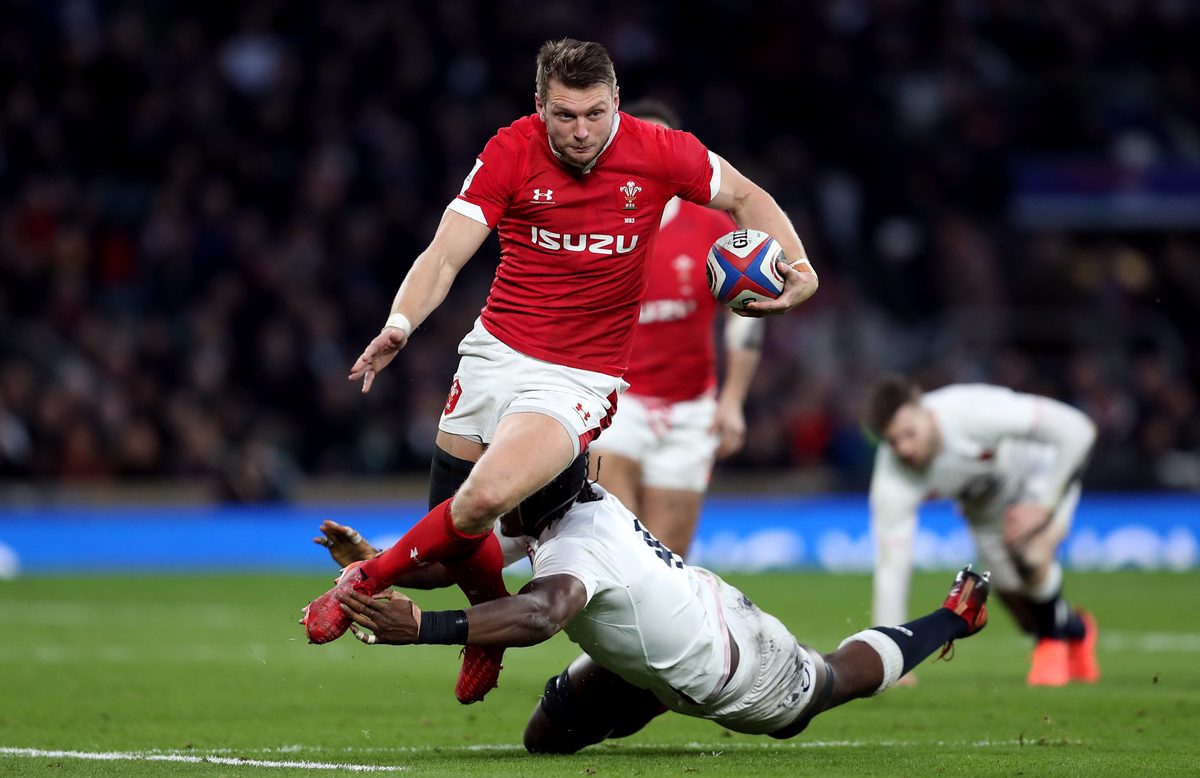
Less than a minute into the game, when the muscle brothers, Tom Curry and Manu Tuilagi, looked to soften the Gowerton-born pivot up with a double-hit, anyone less wilful would have headed straight back into the changing rooms, but not Biggar. He dusted himself off and started shouting instructions. The clear message, ‘bring it on’. England kept rifling balls skywards into Wales’ backfield and invariably, it was Biggar who would climb skyward to catch the ball knowing he was in for some rough punishment but he gritted his teeth stuck at it. He showed he could play, too.
A cute crosskick in the first half stretched the English defence, neat footwork beat English defenders from counter-attacks and got his just reward minutes from time by offering himself to stretch out for a well-deserved try. There is a tendency in some quarters to vilify Biggar for what he doesn’t have as a traditional fly-half – he’s not everyone’s cup of Darjeeling – but perhaps after 83-caps, fans should just admire him for the fortitude he has put in a Welsh shirt. Forget JJ Williams’ spiky barbs, Biggar now justifiably sits alongside Cliff Morgan, Dai Watkins, Barry John, Phil Bennett, Jonathan Davies, Neil Jenkins and Stephen Jones as one of the greats.
WATCH: Eddie Jones and Owen Farrell spoke to the media following their sides win against Wales at Twickenham.




































